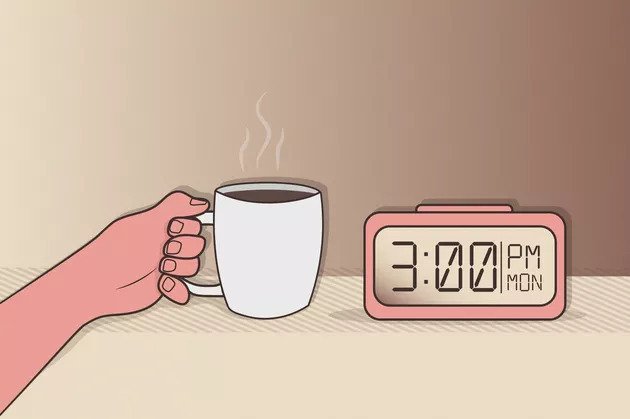I. Introduction
A. Explanation of the popularity of coffee
Coffee has become a popular beverage all around the world, and it's not hard to see why. People drink coffee for its energizing effects, delicious flavor, and comforting aroma. Many people rely on their daily cup of coffee to power up in the morning or give them an extra boost of energy during the day. However, consuming too much coffee can have an impact on your sleep that may be detrimental to your health.
B. Definition of sleep
Sleep is a vital part of healthy living, and it plays an important role in physical and mental well-being. It is characterized as a state of unconsciousness with decreased activity of the central nervous system. During sleep, our bodies can rest and restore energy, helping us wake up feeling refreshed and energized for the day ahead.
C. Thesis statement
Although coffee has its benefits, drinking too much coffee can lead to poor sleep quality and in turn, hurt one’s physical and mental health.
II. How coffee affects sleep
A. Coffee's main ingredient
Coffee's main ingredient is caffeine, a type of stimulant that increases alertness and energy. Caffeine blocks certain receptors in the brain responsible for inducing sleep, resulting in feeling more awake and alert. Additionally, because of its long half-life, most people feel its effects for several hours after consumption.
B. Coffee's half-life
Caffeine has a half-life of approximately 4-6 hours, which means that it takes this amount of time for the body to reduce the caffeine in your system by 50%. While there are ways to reduce this time, such as drinking more water and exercising, it is still important to be aware of how long one’s caffeine intake can affect their sleep.
C. Effects of caffeine on the body
Caffeine, when consumed in high amounts, can have adverse effects on the body. These include jitters, anxiety, headaches, and insomnia. Additionally, caffeine has been linked to an increased risk of hypertension because it increases blood pressure levels and heart rate temporarily. As such, it is important to be aware of the amount of coffee you are drinking and its effects on your day-to-day health.
D. Adenosine and caffeine
Caffeine works by blocking adenosine, a neurotransmitter that contributes to fatigue and drowsiness. By blocking the receptors in the brain that adenosine binds to, caffeine essentially tricks our body into feeling more awake and alert. As we drink coffee or other caffeinated beverages, this continues until we eventually reach the peak of its effects. After the caffeine has been filtered out of our system, we experience what is known as a “caffeine crash”, which causes us to feel tired again.
III. Coffee consumption and sleep
A. Timing of coffee consumption
The timing of coffee consumption has been linked to how it affects our sleep. Caffeine taken in the morning before midday can help us feel alert and energized throughout the day, while caffeine taken too late in the day can lead to sleeping problems due to its stimulatory effects on the body. It is recommended that individuals limit their caffeine intake after 3:00 pm to ensure they are not disrupting their natural sleeping patterns.
B. Amount of coffee consumed
The amount of coffee consumed can also affect our sleep. While it's ok to have a cup or two in the morning to jumpstart our day, having too much coffee in one sitting can cause jitteriness and irritability. Consuming more than four cups of coffee in one day can increase our chances of experiencing insomnia and poor-quality sleep. Studies suggest that individuals should limit their consumption to around 400-500 mg of caffeine per day, which is equivalent to around three 8-ounce cups of brewed coffee.
C. Individual sensitivity to caffeine
Individuals can have different sensitivities to caffeine, which can affect how it affects our sleep. While some people can have a few cups and still fall asleep easily at night, others may need to limit their intake or avoid coffee altogether to get a good night's rest. It is important to pay attention to your body and identify what works best for you to get quality sleep regularly.
D. Impact of caffeine on sleep quality
Caffeine can have a significant impact on our sleep quality. While it may give us a boost of energy in the short term, it can also disrupt our sleep cycles and make it difficult to fall asleep at night. Caffeine has a half-life of around five hours, meaning that after consuming coffee, it can take up to 10 hours for the effects of the caffeine to wear off completely. This can lead to poor quality sleep and difficulty waking up in the morning.
IV. Effects of poor sleep
A. Physical effects
Poor sleep can have several physical effects on our bodies. Not getting enough restful sleep can lead to fatigue, lack of concentration and focus, increased irritability and weakened immunity – leaving us more vulnerable to illnesses. It can also affect our metabolism, leading to weight gain or loss, and increasing the risk of heart disease and stroke.
B. Cognitive effects
Poor sleep can have serious cognitive effects as well. It can impair our decision-making and critical thinking skills, leading to poorer performance at work or school. It can also affect our memory and make it difficult to retain information. Over time, it can even lead to depression or anxiety.
C. Emotional effects
Poor sleep can also affect our emotions. It can make us more prone to mood swings and outbursts, as well as feelings of sadness and isolation. It can create a feeling of overwhelm or decrease our ability to cope with stress. In addition, it can increase feelings of guilt and incompetence, making it harder to have meaningful relationships.
V. Tips for enjoying coffee without sacrificing sleep
A. Limit caffeine intake
Here are a few tips for limiting caffeine intake while still enjoying coffee:
- Drink coffee before noon, as the effects will have faded by then.
- Drink only one cup of coffee per day.
- Make sure to hydrate with water during the day, as caffeine can lead to dehydration.
- Add some fat and fiber to your coffee, such as nut milk or coconut oil, which can help slow down the absorption of caffeine.
- If you’re particularly sensitive to caffeine, opt for decaf varieties.
B. Try decaf coffee
If you're looking to enjoy coffee without sacrificing sleep, consider trying decaf coffee. Decaffeinated varieties of coffee contain much less caffeine than regular varieties - usually around 2-12 milligrams of caffeine per cup. As such, it's a great way to still get the flavor and warmth of coffee without keeping yourself up at night. In addition, decaf coffee offers various health benefits as well as being generally milder in taste.
C. Drink water
One way to enjoy coffee without sacrificing sleep is to make sure you drink plenty of water during the day. Caffeine can lead to dehydration, and drinking enough water helps counteract this effect. Drinking a glass of water with every cup of coffee can help ensure that your body stays hydrated and functioning properly. Additionally, sipping on water throughout the day can help ensure that you don't become overly dehydrated from any caffeine intake throughout the day.
D. Consider alternative beverages
If you're looking to enjoy coffee without sacrificing sleep, consider trying alternative beverages such as tea, herbal decaf teas, or cocoa. Tea and herbal teas contain much less caffeine than regular coffee - around 15-60 milligrams per cup depending on the variety. Cocoa also contains only a small amount of caffeine, so it can be enjoyed any time of day with no issues related to sleep. So don’t feel like you have to stick to coffee if you want some warmth and flavor - there are plenty of alternatives that can keep you alert while still allowing for restful sleep at night!
VI. Conclusion
A. Recap of main points
To enjoy coffee without sacrificing sleep, it's important to take some precautions. Drink plenty of water throughout the day, consider alternative beverages such as tea, herbal decaf teas, or cocoa, and limit your intake of caffeine during the late afternoon and evening. Taking these steps can help ensure you don't suffer consequences related to dehydration or lack of sleep.
B. Final thoughts
Taking the time to think about your caffeine consumption and how it affects your sleep can help you make more informed decisions in the future. Setting boundaries and practicing moderation is key - if you enjoy a cup of coffee in the morning, that's fine; but if it prevents you from getting the restful night's sleep you need, it may be better to try an alternative beverage instead. Cheers to caffeine responsibly!
C. Call to action
Taking control of your caffeine intake is one way to ensure that you'll get the sleep you need to stay healthy and productive. If you're struggling with getting enough rest, take a look at your caffeine consumption and make any necessary adjustments. With just a little effort, you'll find that you have more energy during the day, and get better-quality sleep at night.
VII. Additional Resources
A. List of relevant studies and articles for further reading
For those looking to learn more about the potential benefits of drinking coffee daily, there are many studies and articles available. Here is a list of some of the most relevant and intriguing ones:
- Drake, C., Roehrs, T., Shambroom, J., & Roth, T. (2013). Caffeine effects on sleep taken 0, 3, or 6 hours before going to bed. Journal of Clinical Sleep Medicine, 9(11), 1195-1200. https://doi.org/10.5664/jcsm.3170
- Clark, I., Landolt, H.P., & Coffee, C. (2017). Sleep and caffeine: Effect on daytime sleepiness, alertness, and performance. Sleep Medicine Reviews, 31, 72-82. https://doi.org/10.1016/j.smrv.2016.02.006
- McLellan, T. M., Caldwell, J. A., & Lieberman, H. R. (2016). A review of caffeine's effects on cognitive, physical, and occupational performance. Neuroscience & Biobehavioral Reviews, 71, 294-312. https://doi.org/10.1016/j.neubiorev.2016.09.001
- Bélanger, L., Fournier, S., & Morin, C. M. (2016). Caffeine intake from food and beverage sources and sleep quality in a Canadian population. Journal of Sleep Research, 25(1), 66-72. https://doi.org/10.1111/jsr.12335
B. Recommended coffee brand
For those looking for the best coffee brands and brewing methods to make the most of their daily cup of Joe, visit our shop for a great coffee experience. We also have coffee machines, grinders and brewing tools.
C. Online communities and forums for coffee lovers
For those looking for an online community to share their coffee experiences and knowledge with others, these are some of the best options.


